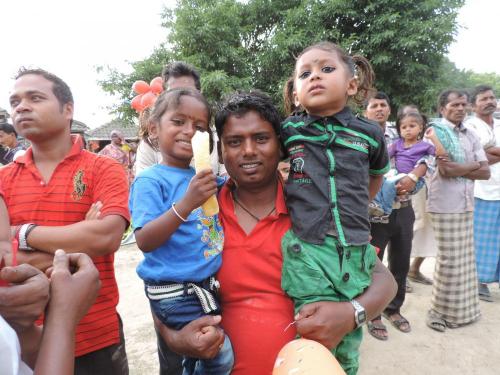
The passage of a year brings a time for reflection and new beginnings. If we've made New Year's resolutions we can choose to look back and constructively evaluate how we've done, what we've accomplished and how to move forward. The reflection part is very important if we are to become kinder, happier and overall improve ourselves. A lot of this has to do with the partnerships/relationships that we build and maintain. The same goes for the relationships that we need to let go of.
In my column two weeks ago I focused on the internal and external, especially community, relationships that businesses must develop to succeed. On an individual level we know that if our relationships are positive with our counterparts in other businesses this creates a win-win situation. As an example at Phul Kumari Mahato Memorial Hospital (PKMMH) we have relationships with a number of suppliers, whether for our canteen/restaurant, pharmaceuticals and other medical supplies, stationary items, software vendor, etc. It's not only about price but also about trust, timely delivery of goods and all around customer service vis-a-vis the various salespeople.
On an individual level I'm constantly reflecting on my relationships in the workplace, should I have done this or that? Could I have handled a situation differently in order to motivate someone to perform their assigned tasks? Due to the contrast in work ethics, this hasn't been easy given how I was raised and the experience of those whom I supervise. This comes down to having an appreciation for others and how they've chosen to live their life. Without the experience of working in another country and understanding what accountability, honesty and straightforward communication means relationships can become quite strained. But these areas are all a matter of one's perspective.
Prior to arriving in New Delhi in March 2009 as a VSO volunteer I had been told that relationships are the base of any pyramid in successfully living/working abroad. However, this is vital in any context. As I built my career in the US I'm not sure that I ever quite appreciated this fact. But as I look back I understand that I was successful/unsuccessful depending upon the relationships and therefore partnerships that I built. I was successful as the Executive Director of the Alliance for Living, a regional HIV/AIDS NGO in the USA primarily due to the fact that I constantly reached out to individuals and the business community, including Pfizer, a major supporter, which had its base in New London County, Connecticut, USA. I was unsuccessful as the Executive Director of the Lancaster Central Market in Pennsylvania because I didn't fully appreciate how different the culture was from my own. Although I tried to build relationships through, e.g. attending church services with vendors and going to their farms, I never quite understood that I just needed to take more time and slow down, in order to be an effective leader. (Maybe I also didn't understand a basic mistrust of "outsiders").
No matter what our age these lessons aren't particularly easy to learn. Upon reflection what I have learned is that in order to build more than a surface relationship and deep long lasting partnerships one must be willing to look another person in the eye, something I learned in Lancaster, and listen with all of one's being. I learned that it is not the end result but the road that we take and how we "walk" together that will make the difference. As human beings we often try to be "one-up" on someone else; we must lead and others must follow. However this doesn't lead to sustainable relationships or partnerships.
With the Nepali New Year recently occurring we all have an opportunity to make our relationships/partnerships better. It's difficult to forget the past and we shouldn't but the reality is that we can become better people in the New Year if we pay more attention to our relationships.










Add new comment